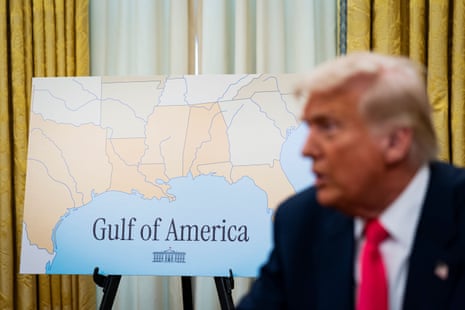Gulf of Mexico: History, Significance, and the Debate Over Its Name

The Gulf of Mexico is one of North America’s most important and storied bodies of water. Stretching from Texas to Florida and touching Mexico’s shores, it plays a key role in commerce, ecology, and the cultural life of the region. Recently, a political movement has sparked debate over its very name, drawing national and international attention.
The Gulf of Mexico’s Place in American Life
The Gulf of Mexico borders five US states—Texas, Louisiana, Mississippi, Alabama, and Florida. For centuries, its warm waters have supported commerce, fishing, and tourism. It is an ecosystem teeming with life, from shrimp and oysters to dolphins and sea turtles. The gulf’s coastline is famous for its beautiful beaches, vibrant cities, and rich cultural traditions.
America's Gulf Coast thrives on industries like shipping, energy production, and seafood. Major ports such as New Orleans, Houston, and Tampa connect the US to global markets. Additionally, the gulf’s fertile wetlands sustain wildlife and help buffer storm surges during hurricane season.
The Political Push to Rename the Gulf
In early 2025, a bill to officially rename the Gulf of Mexico to the "Gulf of America" passed the US House of Representatives. This move stems from political initiatives led by figures such as Rep. Marjorie Taylor Greene, with backing from former President Donald Trump.
The bill narrowly passed in a 211-206 vote and now heads to the Senate. Its supporters argue the renaming reflects America’s stake in the region, while critics view the effort as unnecessary and politically motivated. CNN Politics offers a comprehensive overview of the bill and its potential impact.
Controversy and Public Reaction
The proposal has drawn sharp reactions across the political spectrum. Supporters claim it is a matter of national pride, while opponents argue that the name change will not address real regional challenges like job creation or climate resilience. Democratic lawmakers and some Republicans have criticized the move, calling it a waste of resources that ignores more pressing issues.
For further reading on the legislative process and partisan responses, see The Guardian’s coverage of the House vote and the debate over renaming the Gulf of Mexico.
Why the Name Matters
The gulf’s name is deeply tied to history and geography. For centuries, it has been known as the Gulf of Mexico, reflecting the intertwined destinies of neighboring nations. Renaming it could create confusion on maps and in international relations, especially as most countries do not recognize any proposed change.
The Gulf’s Future: Beyond Politics
Regardless of what name appears on federal maps, the Gulf of Mexico remains a vital resource. Protecting its coastal communities, sustaining its marine ecosystems, and preserving its historical legacy is crucial. Communities along the shore continue to rely on its waters for their livelihoods and cultural identity.
Conclusion
The gulf’s importance goes beyond political debates and headlines. Whether called the Gulf of Mexico or the Gulf of America, it remains central to North America’s environment, economy, and spirit. As discussions continue, it is essential to remember the region’s heritage and the enduring bond between its people and the sea.